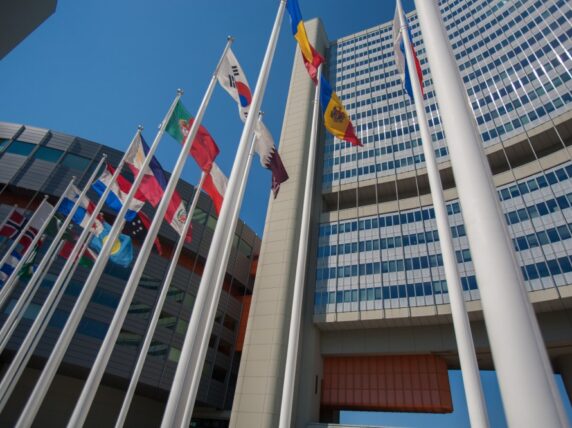DFID must be at the heart of global Britain
“You campaign in poetry, you govern in prose,” said former governor of New York, Mario Cuomo.
Now that the political bluster and buzzwords of the general election have dissipated, we are seeing the type of government prime minister Boris Johnson wants to run: a slimmed down, less bureaucratic machine, looking for “weirdos and misfits” with “big-ideas”.
As foreign secretary, Johnson had his eye on controlling the aid budget. In an era of austerity, the Department for International Development’s (DFID) budget was (and still is) protected by law – the only one that needs an act of parliament to change it. Since moving up the road to No.10, his successor, Dominic Raab, seems to have similar ideas.
DFID’s independence at risk
We’ve seen several stories in the media on the Conservative Party’s desire to redesign the machinery of government, including some on moving DFID into the Foreign and Commonwealth Office (FCO). In the guise of delivering a “coordinated approach to foreign policy”, this move would give the foreign secretary control over DFID, either as a separate entity to the FCO or scrapped entirely with the staff moving under the auspices of FCO.
While these are two very different scenarios with a variety of grave consequences, any move to merge these departments – whether it be about who controls the budget or a full-blown merger with DFID no longer existing – is a bad one both politically and practically.
Since the EU referendum result, we’ve heard the government’s desire for the UK to remain a compassionate, outward-facing nation on the world stage – a “global Britain”. But we haven’t seen an agenda that goes beyond rhetoric. If this government is serious about delivering a global Britain, an independent and empowered DFID must be at the heart of this agenda.
Subscribe to our newsletter
Our weekly email newsletter, Network News, is an indispensable weekly digest of the latest updates on funding, jobs, resources, news and learning opportunities in the international development sector.
Get Network NewsI understand and respect the power and importance of trade, when done in an ethical way that doesn’t curtail human rights and the environment. Trade has enormous potential to help lift people out of poverty and it helps build roads, hospitals, schools and economies.
But it’s a moot point to suggest that DFID should be subsumed into other departments, simply because they have more staff in Kenya than the Department of International Trade does in Africa. Want more trade staff in Africa? Hire more trade staff. It’s not and should never be a tit for tat with DFID staff.
Let’s take a look at those DFID staff working in Kenya. Some are keeping children safe from deadly diseases we haven’t seen in the UK for a century. Some work with local businesses to build sustainable jobs to bring down the rising levels of poverty in Kenya. Some work with local civil society groups to empower young girls who one day will lead their communities. Others work hand in hand with the Kenyan people, offering help and expertise when needed – a truly global Britain.
DFID is already delivering a global Britain
Yes, the Foreign Office has been chronically underfunded for the best part of a decade, but the answer to a lack of resource isn’t putting DFID under the control of the foreign secretary or usurping the department.
The UK needs defence, diplomacy and development working together to ensure that a “Global Britain” is one that exudes the virtues of our great nation and promotes the values we hold so dear: compassion, democracy and the rule of law.
DFID works on specialist, complex development and humanitarian issues that are distinct from the day to day priorities of the Foreign Office. Yes, these issues are complementary to foreign policy, but alleviating poverty, tackling humanitarian crises or combatting the devastation left by climate change requires DFID’s world-renowned skills and expertise.
This government can continue to be a force for good in this world, delivering a global Britain that uses its diplomacy and development to help transform lives for the better. But an independent and robust DFID, with its own secretary of state for international development, needs to be at the heart of it.
Category
News & viewsThemes
Politics


